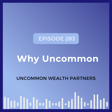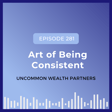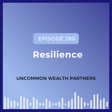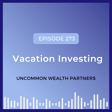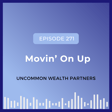
The Roadhouse: Interview with Aaron Lenz
In this episode of the Uncommon Wealth Podcast, host Phillip Ramsey interviews Aaron Lenz, a remarkable entrepreneur who defies the odds in the restaurant industry. Aaron shares his inspiring journey from a small pizza joint in Perry, Iowa, to managing multi-million dollar restaurants in major cities, and eventually owning successful establishments in Orange City. His story is a testament to resilience, strategic decision-making, and the pursuit of passion.
Aaron dives into the complexities of restaurant ownership, explaining why the adage "restaurants are where good money goes to die" holds true yet can be overcome with proper management and vision. Through detailed anecdotes, Aaron illustrates the hard work, narrow margins, and high costs that define the business. He emphasizes the importance of empowering employees and crafting a unique customer experience, shedding light on his philosophy and entrepreneurial drive. Despite the challenges, Aaron's journey underlines the rewards of creating a thriving dining establishment in unexpected places, making a compelling case for following one's dreams.






